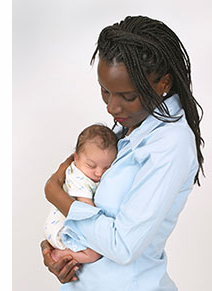Programs & Expertise
Child Health Program (CHP)
The FXB Center is home to the Child Health Program (CHP). CHP is a nursing program that supports the child welfare goals of the New Jersey Department of Children and Families (DCF)/Child Protection and Permanency (CP&P).
Mission Statement
 The mission of CHP is to improve the health and wellbeing of children and families in New Jersey. The program supports the goals of DCF and CP&P by hiring, orienting, educating and supporting nurses to provide compassionate, trauma informed nursing care. Through partnership with staff assistants, caseworkers, families, and the community, nurses advocate to ensure children and youth receive services that promote optimal growth, development, health, and well-being and improve their long-term outcomes.
The mission of CHP is to improve the health and wellbeing of children and families in New Jersey. The program supports the goals of DCF and CP&P by hiring, orienting, educating and supporting nurses to provide compassionate, trauma informed nursing care. Through partnership with staff assistants, caseworkers, families, and the community, nurses advocate to ensure children and youth receive services that promote optimal growth, development, health, and well-being and improve their long-term outcomes.
Child Health Program Core Values and Principles That Guide Nursing Care
- All children deserve compassionate, trauma-informed care that promotes optimal health and wellbeing.
- Families are the experts on their children
- CHP recognizes the impact of the family on the child, and looks to support and empower families.
- Cultural and socioeconomic distinctions are understood and respected.
- Children involved with child welfare require additional physical and mental health care interventions to address their specific health care needs.
- CHP nurses assess the child’s health care needs, including identification of family strengths and needs, develop a plan of care, integrate the health plan into the child welfare service plan to ensure safety, permanency and wellbeing, and intervene and advocate to ensure continuity of care and improved health care outcomes.
- All children deserve a patient-centered medical home.
- Improved child health outcomes can promote the stability of children and enhance the achievement of permanency.
- Partnership with families, New Jersey’s DCF/CP&P, and community providers is essential to best meet the needs of children and families.
- Communication between all partners involved in the health care and wellbeing of a child is critical to obtaining optimal health.
New Jersey’s data indicates that strong partnerships with child welfare, nursing, community providers and families are necessary to achieve the best outcomes for children and families.
Integrated within DCF/CP&P, CHP has established Child Health Units (CHU) that are co-located in 46 child welfare offices throughout New Jersey. The CHUs are staffed with baccalaureate prepared nurses, who serve as Health Care Case Managers, and professional Staff Assistants, who provide support and assistance to meet the health care goals for children and families. Eighteen (18) Regional Nurse Administrators (RNA) provide administrative support and clinical supervision to multiple CHUs in a specific area and coordinate efforts with the CP&P Local Office Manager for the offices in those areas. Overall program leadership is provided by a team of Doctorial Prepared Nurses with experience and expertise in nursing administration, child welfare, pediatrics, health care case management, mental and behavioral health, education, and informatics.
The CHP Health Care Case Management (HCCM) model provides nursing care focusing on children removed from their birth family, with every child and youth in placement assigned to a nurse. The model acknowledges the importance of family for the child. The nursing process is core to delivery of HCCM. The process is fluid and requires ongoing assessment, planning and evaluation. During a child’s placement, the nurse works collaboratively with the child, birth parents, resource parents, case workers and community providers to develop and integrate a health plan within the child welfare service plan, to coordinate health care services, and to advocate for child specific health care services. Nurses are responsible for assessing children’s physical and mental health needs, including identification of family strengths and needs, through medical record reviews and home visitation. These health care case managers monitor follow up and response to the health plan, advocate for children’s health care needs, and provide health education and anticipatory guidance to birth families, resource families/providers, and youth.
CHP has been touted as a national model and has achieved notable outcomes for children in foster care. Recognizing the strength of the CHP, DCF has expanded funding to the program, and has established the Child and Family Nurse Program (CFNP) to address the health care needs of children and families in 5 counties in New Jersey. CHP understands the unique needs of families involved in the child welfare system and is well positioned to implement a Child and Family Nursing Team. These nurses assess health care needs, coordinate care, and collaborate with families whose children are not in foster care placement, as well as with caseworkers, and community providers to support and strengthen these families. The aim of this initiative is to prevent disruption of families and placement of a child in foster care.
For more information contact:
Nina Colabelli, DNP, RN, APN, CPNP-PC
Director, Child Health Program
François-Xavier Bagnoud Center
973-972-9229
colabenb@sn.rutgers.edu
Other Programs
- AETC National Coordinating Resource Center
- Child Health Program
- Elimination of perinatal HIV transmission in NJ
- FXB Clinical Practice
- Research
- New Jersey HIVLinks
- Northern New Jersey Regional Partner Site (RP) of Northeast/Caribbean (NECA) AIDS Education and Training Centers (AETC)
- Quality Management Programs
- Ryan White Medical Case Management Training Program (MCM)
- Statewide HIV Continuing Education



